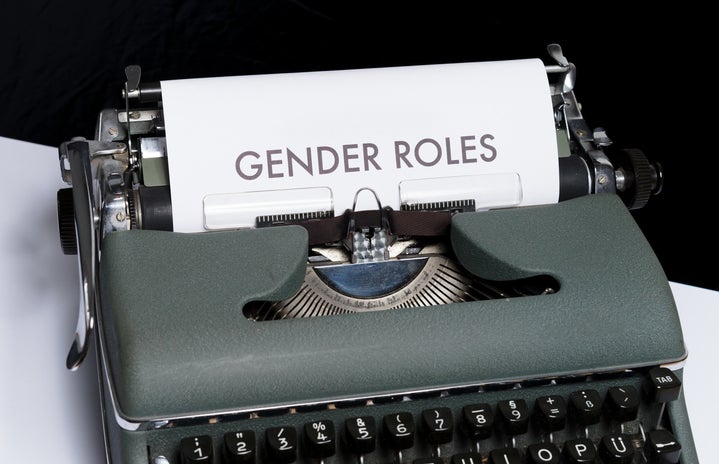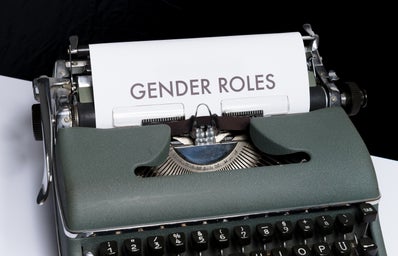Taking place in 1961 in Virginia, based on a true story, the film Hidden Figures features three brilliant Black women scientists who were involved in much of the work that helped to launch the United States into the Space Race. While battling race and gender discrimination, Katherine Goble (played by Taraji P. Henson), Dorothy Vaughn (played by Octavia Spencer), and Mary Jackson (played by Janelle Monae) each conquered obstacles in the way of making a name for themselves at NASA.
This is the first of many gender bias instances that Goble faces throughout the film. Goble was having a conversation with Jim Johnson (played by Mahershala Ali) and he was surprised to learn that women do such tasking things at NASA, “They let women handle that sorta..” At NASA, Goble, and most of the women, is considered a “computer” while doing calculations under the supervision of Al Harrison (played by Kevin Costner). The term “computer” should be a sort of recognition for the women and the work that they do, but it’s used in a derogatory manner. Goble eventually forgives Johnson for his outright bias about the work that she and other women do for NASA and she says, “And it’s not because we wear skirts. It’s because we wear glasses.” The quote assures the audience that Goble is proud of the work that she has done for NASA.
Vaugh finds out that soon the work her and her co-workers do will become invaluable because a machine will replace them. “Learn all we can to make ourselves valuable,” said Vaughn. She is also seen throughout the movie fighting for the position of supervisor of her department because she does all the work of one yet gets none of the pay or credit. Vivian Mitchell (played by Kirsten Dunst) continues to shoot down Vaughn when she asks about the job.
Towards the end of the movie, Mitchell hands a new job to Vaughn, one where she will get to act as supervisor to a team of women working to manage the new computer. Mitchell can be seen being blatantly racist towards Vaughn in multiple circumstances throughout the movie, however, when Mitchell hands Vaughn the job, it’s a sign of her making an effort and a sign of female solidarity because while Mitchell is in a slightly higher position of power than Vaughn throughout the movie, she recognizes the importance of women supporting one another.
Karl Zielinski (played by Aleksander Krupa) recommends to Jackson that she pursue a career in engineering because of her outstanding skills she possesses which led Jackson to apply for NASA’s engineer training program. “NASA doesn’t commission females for the engineer training program,” Mitchell said to Jackson. Mitchell explains to Jackson that in order to enroll in classes for the other engineer training program she will have to take classes at a segregated high school. This means, she will have to petition the court to allow her to take classes. “Every time we have a chance to get ahead, they move the finish line,” Jackson said, lamenting on the inequalities she faced.
By the time Jackson succeeds in being allowed to take classes at the local high school, it’s only men present in the classroom as well as a man teaching the course. “The curriculum is not designed to teach… a woman,” said the teacher to Jackson. “Well I imagine it’s the same as teaching a man,” replied Jackson, as if women don’t have the capacity to learn such manly things. Jackson became NASA’s first Black female engineer and a leader ensuring the same effects of equality for future generations.
The importance of female friendships is a major theme displayed in the movie. At the end of the film, it’s coming into focus to the White women that supporting the Black women is of great importance if they all want to make strides in their fields. The support women give one another in times of need, is unlike any other and should be cherished.
The Civil Rights Movement was a significant step in the right direction at the time that these three outstanding women were working at NASA and while this film is a representation of the work that needed to be done around the world then, it also brings about the work that still needs to be done today. So many communities all over the world are being discriminated against, excluded, and even exterminated. This movie should be seen as an example of what can happen when barriers are pushed and boundaries are broken.
These three women were not often recognized for the work they accomplished while at NASA, nor do most Americans know about them and their endeavors that they faced. Goble, Vaughn, and Jackson are considered hidden figures because they didn’t always receive the credit they are owed
In essence, the work that these three women accomplished not only allowed NASA’s mission to succeed, but also challenged racial and gender discrimination that impacted many other Black women. The film “Hidden Figures” was a great watch, but I left with one big takeaway: I’d like to see a man try to run back and forth to the bathroom, in heels, while carrying the weight of an astronaut’s life in the success of his calculations, without receiving credit for doing so, all the while enduring constant belittling while they gracefully tackled a so-called “man’s job”. That’s all.


